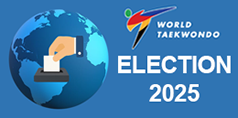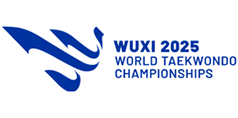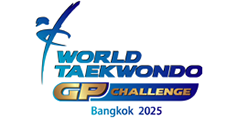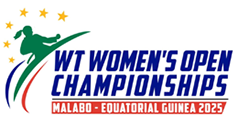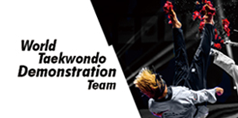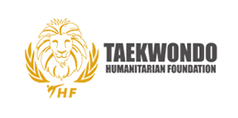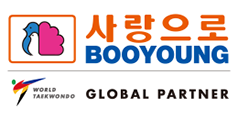ABOUT ANTI-DOPING / CLEAN SPORT
WHAT IS DOPING?
Doping is defined as the occurrence of one or more of the following Anti-Doping Rule Violations (ADRVs):
- Presence of a prohibited substance in an athlete’s sample
- Use or attempted use of a prohibited substance or method
- Refusing to submit to sample collection after being notified
- Failure to file athlete whereabouts information and missed tests
- Tampering with any part of the doping control process
- Possession of a prohibited substance or method
- Trafficking a prohibited substance or method
- Administering or attempting to administer a prohibited substance or method to an athlete
- Complicity in an ADRV
- Prohibited association with athlete support personnel who has engaged in doping
WHY IS DOPING IN SPORT PROHIBITED?
The use of doping substances or doping methods to enhance performance is fundamentally wrong and is detrimental to the overall spirit of sport. Drug misuse can be harmful to an athlete’s health and to other athletes competing in the sport. It severely damages the integrity, image and value of sport, whether or not the motivation to use drugs is to improve performance. To achieve integrity and fairness in sport, a commitment to clean sport is critical.
WHAT DO ATHLETES AND ATHLETE SUPPORT PERSONNEL NEED TO KNOW ABOUT ANTI-DOPING?
“Every athlete has the right to clean sport!”
Any athlete may be tested in- and out-of-competition, anytime, anywhere and with no advance notice.
The principle of strict liability applies in anti-doping – if it is in the athlete’s body, the athlete is responsible for it.
Athletes’ responsibilities include (but are not limited to):
- complying with the WT’s Anti-Doping Rules (in line with the World Anti-Doping Code);
- being available for sample collection (urine or blood), whether in-competition or out-of-competition;
- ensuring that no prohibited substance enters his body and that no prohibited method is used;
- making sure that any treatment is not prohibited according to the Prohibited List in force and checking this with the prescribing physicians, or directly with the IF if necessary;
- applying to the WT (or national anti-doping organization if the athlete is a national level athlete) if no alternative permitted treatment is possible and a Therapeutic Use Exemption (TUE) is required (see the WT’s TUE application process);
- reporting immediately for sample collection after being notified of a doping control;
- ensuring the accuracy of the information entered on the doping control form during sample collection (including stating any medications and supplements taken within the seven days prior to sample collection, and where the sample collected is a blood sample, blood transfusions within the previous three months);
- cooperating with anti-doping organizations investigating anti-doping rules violations (ADRVs); a
- not working with coaches, trainers, physicians or other athlete support personnel who are ineligible on account of an ADRV or who have been criminally convicted or professionally disciplined in relation to doping (see WADA’s Prohibited Association List).
Note: during doping control, the athlete must remain within direct observation of the Doping Control Officer (DCO) or chaperone at all times from when the initial contact is made until the completion of the sample collection procedure. The athlete must also produce identification upon request.
Athletes’ rights include (but are not limited to):
- during the doping control:
- bringing a representative and, if available, an interpreter;
- asking for additional information about the sample collection process;
- requesting a delay in reporting to the doping control station for valid reasons (
International Standard for Testing and Investigations Art. 5.4.4); and
- requesting modifications for athletes with impairments (if applicable).
- requesting and attending the B sample analysis (in the case of an Adverse Analytical Finding); and
- in the case of an Anti-Doping Rule Violation (ADRV) being asserted, the athlete has the right to a fair hearing and the right to appeal the hearing decision.
Coaches, trainers, managers, agents and other support personnel have a role in defending clean sport and supporting the athletes in the anti-doping processes.
Athlete Support Personnels’ obligations include (but are not limited to):
- knowing and complying with all applicable anti-doping policies and rules, including the WT’s Anti-Doping Rules (in line with the World Anti-Doping Code); and
- refraining from possessing a prohibited substance (or a prohibited method)*, administering any such substance or method to an athlete, trafficking, covering up an anti-doping rule violation (ADRV) or other forms of complicity and associating with a person convicted of doping (prohibited association). These are ADRVs applicable to Athlete Support Personnel under Article 2 of the World Anti-Doping Code and Article 2 of the WT’s Anti-Doping Rules.
*unless the Athlete Support Personnel can establish that the possession is consistent with a TUE granted to an athlete or other acceptable justification. Acceptable justification would include, for example, a team doctor carrying Prohibited Substances for dealing with acute and emergency situations.
Athlete Support Personnel’s rights include (but are not limited to):
- In the case of an ADRV being asserted, the Athlete Support Personnel has the right to a fair hearing and the right to appeal the hearing decision.
WHAT IS WADA AND WHAT IS ITS ROLE?
The World Anti-Doping Agency (WADA) was established in 1999 as an independent international agency and is composed and funded equally by the sport movement and governments of the world. Its key activities include in particular scientific research, education, development of anti-doping capacities, investigations and monitoring of the World Anti-Doping Code and its application by Code signatories (International Federations, National Anti-Doping Organizations, Major Event Organizations, etc.).
For more information about WADA, consult:
WHAT IS THE ROLE OF THE INTERNATIONAL FEDERATION (IF)?
Anti-doping activities required of IFs by the World Anti-Doping Code include conducting in-competition and out-of-competition testing, providing education programs and sanctioning those who commit anti-doping rule violations.
If you have any anti-doping queries, please contact WT Anti-Doping at
antidoping@worldtaekwondo.org.
WHAT IS THE ROLE OF THE NATIONAL ANTI-DOPING ORGANIZATIONS (NADOs)?
NADOs are organizations designated by each country as possessing the primary authority and responsibility to adopt and implement national anti-doping rules, carry out anti-doping education, plan tests and adjudicate anti-doping rule violations at a national level. They may also test athletes from other countries competing within that nation’s borders.
Check the
list of NADOs to find out who to contact in your country.
If a NADO has not been designated in a country, the National Olympic Committee (NOC), if there is no NADO, takes over these responsibilities. In a number of regions of the world, countries have pooled their resources together to create a Regional Anti-Doping Organization (RADO) responsible for conducting anti-doping activities in the region in support of NADOs.
Check the
list of RADOs.
RADOs bring together geographically-clustered groups of countries where there are limited or no anti-doping activities. The RADOs provide anti-doping education for athletes, coaches and support personnel, testing of athletes, training of local personnel to undertake this task and an administrative framework to operate within.




























